The Planetary Settlement system in No Man’s Sky was introduced with the Frontiers update, and with it an entirely new game mode which allows you to govern and expand a settlement, with its own inhabitants, events, and policies. This page details how to find the best Planetary Settlements according to your own preferences, but also how to get the best start based on the features of a settlement.
Planetary Settlements, No Man’s Sky.
Where to Find Planetary Settlements in No Man’s Sky¶
Complete the Awakenings Questline¶
If you’re new to the game, you’ll first need to progress the Awakenings main questline, which essentially serves as a tutorial introduction to basic game mechanics, and provides you with some of the most important tools that you’ll need to traverse the universe. Once you’re done with that quest, you’ll be able to fly into orbit around a planet and wait for a signal, indicating that you should investigate a planetary settlement. This will only happen once, and it will be limited to the specific settlement that was identified on the planet you happened to be orbiting at the time. You can target the settlement and use the Pulse Drive to fly to it quickly and inspect the Settlement Hub Interface to view some of the basic stats of that particular settlement.
When you first visit a new settlement, you will always trigger a sentinel drone attack if you speak with the marked settler before interacting with the Settlement Hub Interface. To avoid this, you should always interact with the hub interface first. However, keep in mind that if you fight off the sentinels, the settlers will accept you as their new overseer without any questions asked. If you don’t fight them off, they may request a small quantity of a specific random item to become overseer when you interact with the hub interface.
Purchase Settlement Charts from Cartographers¶
If the settlement you find isn’t necessarily to your liking, or lacks decent starting elements (more on that below), you don’t need to settle for it. Instead, you can exchange 5 Navigation Data for 1 Settlement Chart from a Cartographer. You’ll find cartographers at every space station, just to the left of a Station Terminus teleporter. When speaking with the cartographer, select the option for “Exchange specific charts”, you’ll then find the settlement charts at the bottom of the list. These are the most expensive charts sold by the cartographer, since every other chart costs only 1 Navigation Data. However, you’ll find numerous clusters of Navigation Data on most planets, and you can sometimes find them being sold at Galactic Trade Terminals. To find them on planets, look for Ancient Data Structures using the Analysis Visor. Alternatively, you might find some at Cargo Drops or as Encrypted Navigation Data, which are sometimes found in small shelters, abandoned buildings, or at space stations.
However you do it, once you have enough settlement charts you can begin using them from your inventory, ideally on a planet that you’d like to establish a planetary settlement on. There’s no limit to the amount of charts you can use, but once you’ve identified a settlement on one planet, you won’t be able to identify any others on it using the charts.
How to Get a Timber (Gek), Stone (Vy’Keen), or Alloy (Korvax) Settlement¶
There are currently three different types of planetary settlement that you can find: timber, stone, and alloy. Each of these building materials are associated with a specific race. The Gek are associated with timber, the Vy’keen with stone, and the Korvax with alloy. If you want a planetary settlement which is constructed from a specific material out of these three types, you’ll need to look for a settlement within a system associated with that particular race. You can check which race is associated with a specific system using the Galaxy Map when you’re in orbit, as shown in the screenshot below. If you’re not sure which material you prefer, you can locate a settlement in all three systems to inspect the structures in person first.
(1 of 2) Use the Galaxy Map to scout for systems of a specific race.
Use the Galaxy Map to scout for systems of a specific race. (left), You can purchase Settlement Charts from Cartographers at Space Stations. (right)
How to Get the Best Settlements¶
Settlement Overview Stats and Features¶
Once you’ve decided on the type of settlement you want to oversee (Gek, Vy’keen, or Korvax), it’s time to find one with decent overview starting stats. The main elements you’ll want to be concerned with are the Population, Happiness, Productivity, Maintenance Cost, and Sentinel Alert Level. The Settlement Features are also important, but they can be changed relatively easily as you expand your settlement. However, you’ll still benefit from a settlement with at least two positive starting features if you’re lucky enough to find one. What really matters is finding a settlement with the best balance of these overview stats and settlement features.
The first thing you should do once you’re on a planet where you want to find a planetary settlement is build a Save Beacon. Interact with the beacon to create a manual save before you use the settlement chart. This will allow you to roll back your progress if the settlement that the chart found doesn’t have decent starting stats. Keep in mind that it will be almost impossible to find a settlement with actively good starting stats, but you can still find one which is better than most to make things easier for you at the beginning, in accordance with the points below.
What to Look For in a Planetary Settlement¶
The most important overview stats that you’ll want to consider first of all are probably the Productivity and Maintenance Cost numbers. The maximum amount of productivity income is 1,000,000, but you’ll find that almost all the settlements you find will have a much lower productivity than that, usually somewhere between 100,000 - 300,000. If you’re just starting out and you need to preserve as many units as possible, you should be aiming for a maintenance cost which is as close to the productivity output as possible. This will allow you to offset as much loss as possible, especially if both productivity and maintenance cost are closer to 100,000 than 300,000.
It will be essentially impossible to find a settlement with a productivity output which exceeds the maintenance cost, since this defeats the initial purpose of planetary settlements. The idea is that you find a settlement without an overseer and in need of help, so it’s your job to take it from struggling to prosperous. The important thing here is that you reduce the gap between productivity and maintenance cost as much as possible, making it easier to make a profit sooner once you take over the settlement.
You will find that settlements with smaller population sizes have lower maintenance costs, which is especially desirable if you’re still struggling to make units (see our Best Ways to Make Units Quickly page if so!). An additional benefit of smaller starting population sizes is that you will have more opportunities to select the types of residents that will inhabit the settlement. This becomes important when you consider the many different job roles which become available as new citizens request to join and as different types of structures are built, with some jobs and buildings contributing more to increased happiness and productivity than others.
(1 of 2) You will find that almost every settlement starts off with more maintenance cost than productivity, and with very few positive features.
You will find that almost every settlement starts off with more maintenance cost than productivity, and with very few positive features. (left), If you go for a settlement with maintenance costs as close to productivity output as possible, it won’t take long before you’re making a profit. (right)
So, we’ve established that you should be looking for a settlement which has a productivity output as close to the maintenance cost as possible, and that you’re probably better off starting with fewer citizens. These are by far the most important points to consider when looking at settlements to potentially take over. However, you should also keep the happiness, sentinel alert level, and settlement features in mind. The level of happiness will always be on the lower end to begin with, but you can increase this by making decisions which contribute to increased happiness once you take over. This in turn will replace negative settlement features with positive ones, eventually leading to a scenario where you only have positive settlement features.
Finally, the sentinel alert level determines the risk of a sentinel attack. The alert level will gradually increase as you construct new buildings and invite new citizens to your settlement. If an attack isn’t triggered by the risk as you approach 100% alert level, it will trigger automatically once you reach this point, so you’ll need to be ready to defend the settlement with decent weapons and exosuit upgrades. As a result, if you’re still relatively new to the game and you need to upgrade your gear, look for a settlement with a low sentinel alert level, giving you more time to prepare. With that said, most players shouldn’t have much trouble fighting off the sentinels attack even with basic starting gear, so you don’t need to worry about this overview stat as much as the others.
This covers everything you need to know about how to find and select the best planetary settlements. For more information in terms of how to manage settlements, see our page on that here.
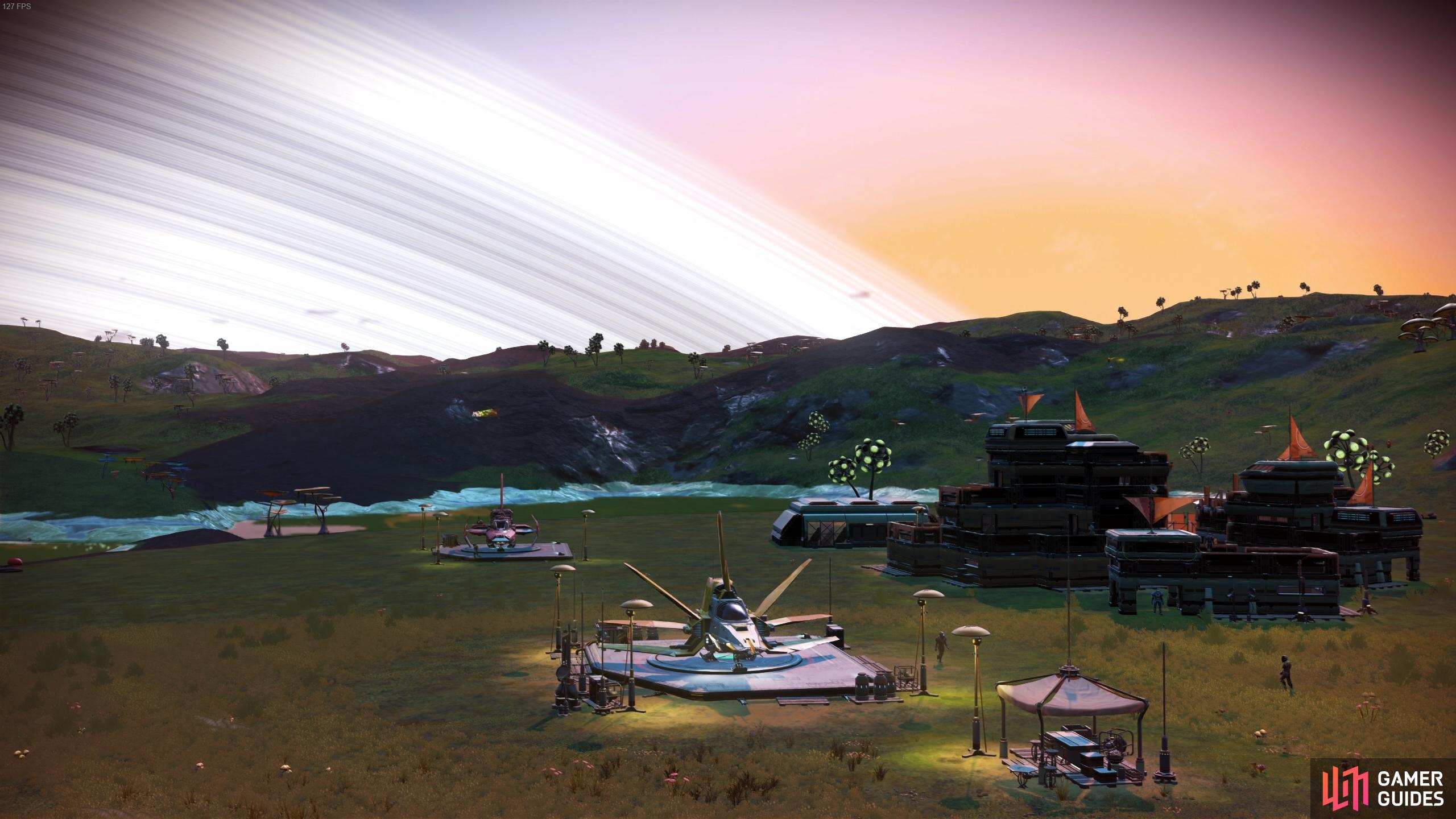
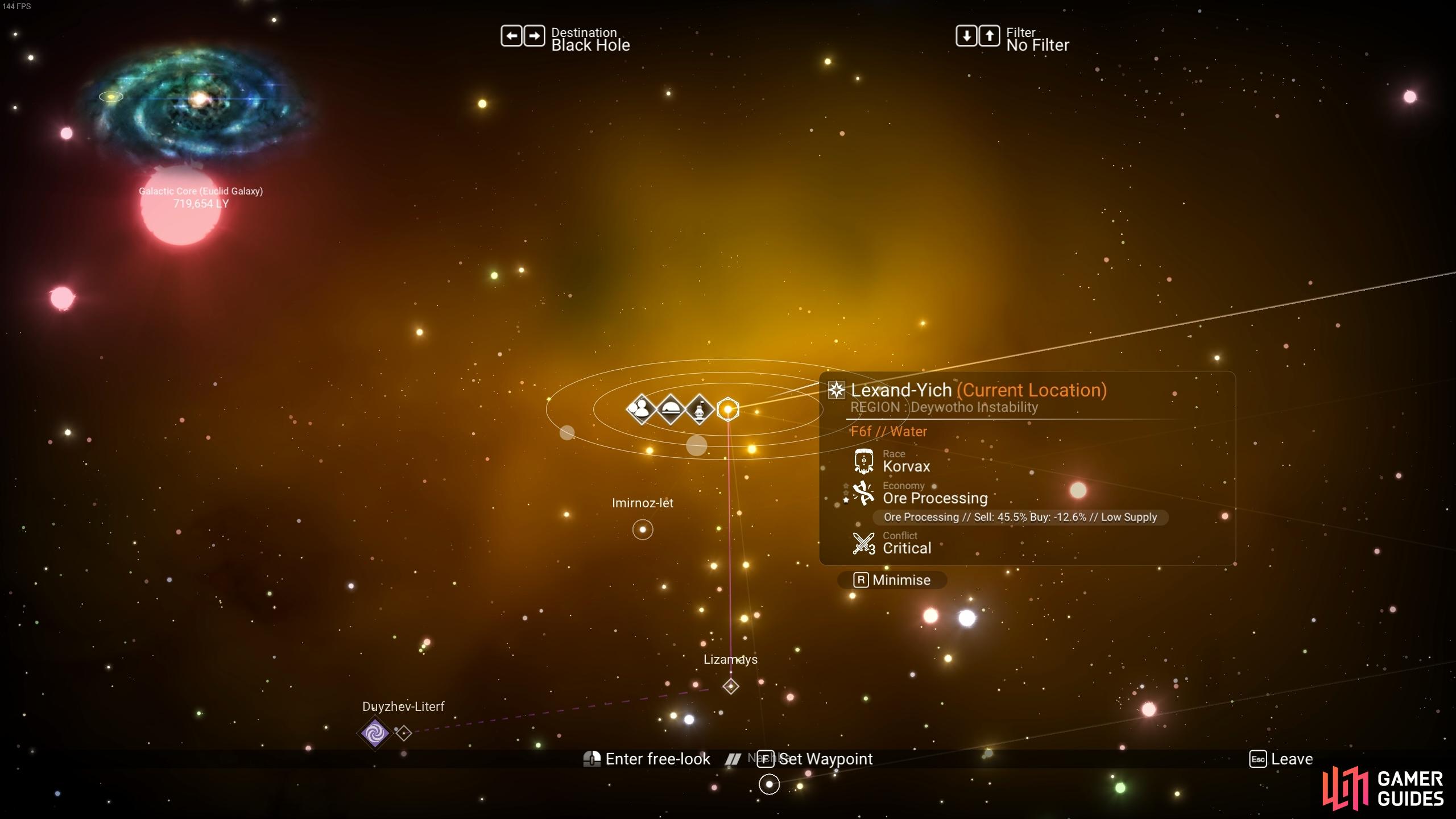
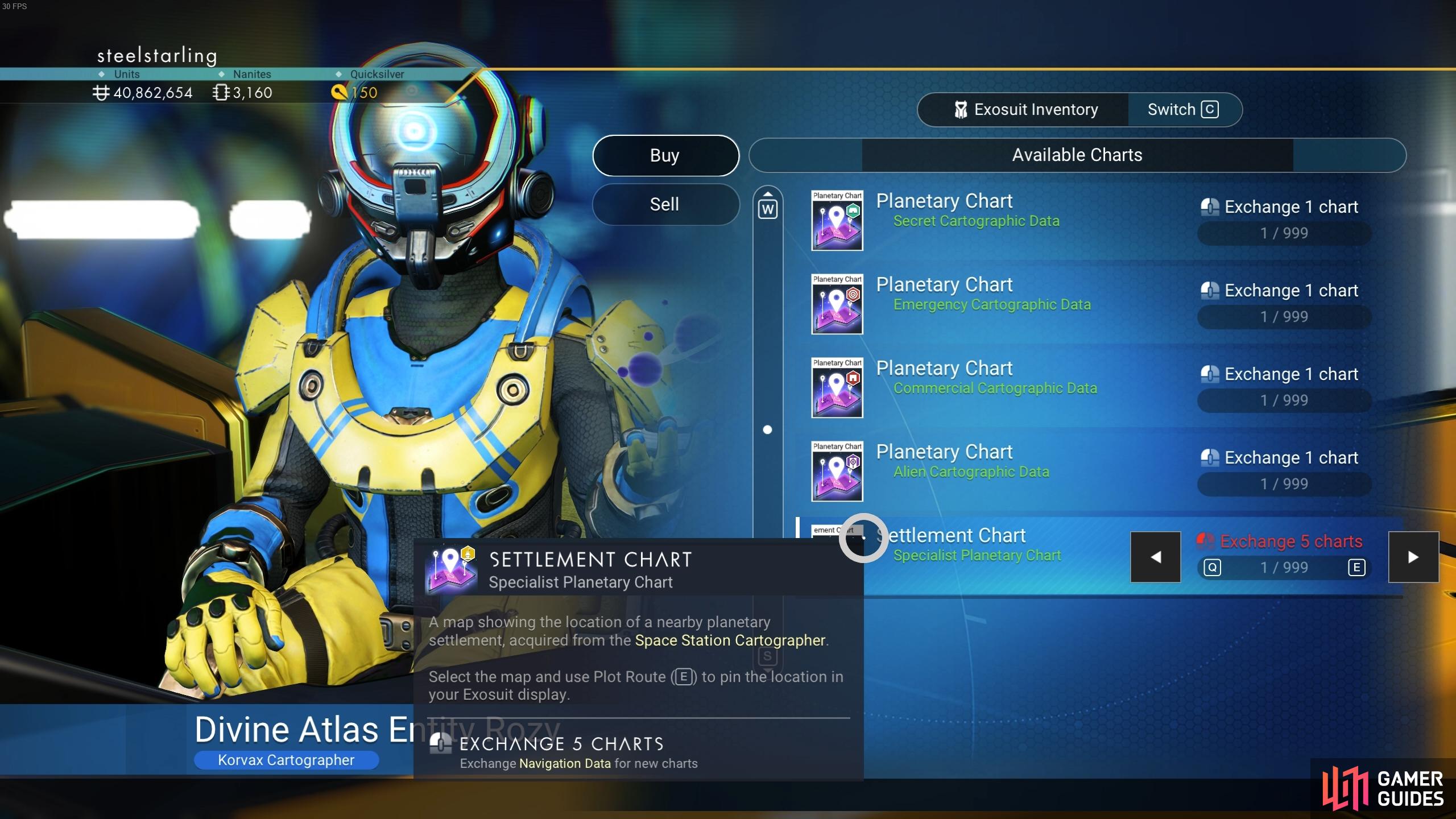
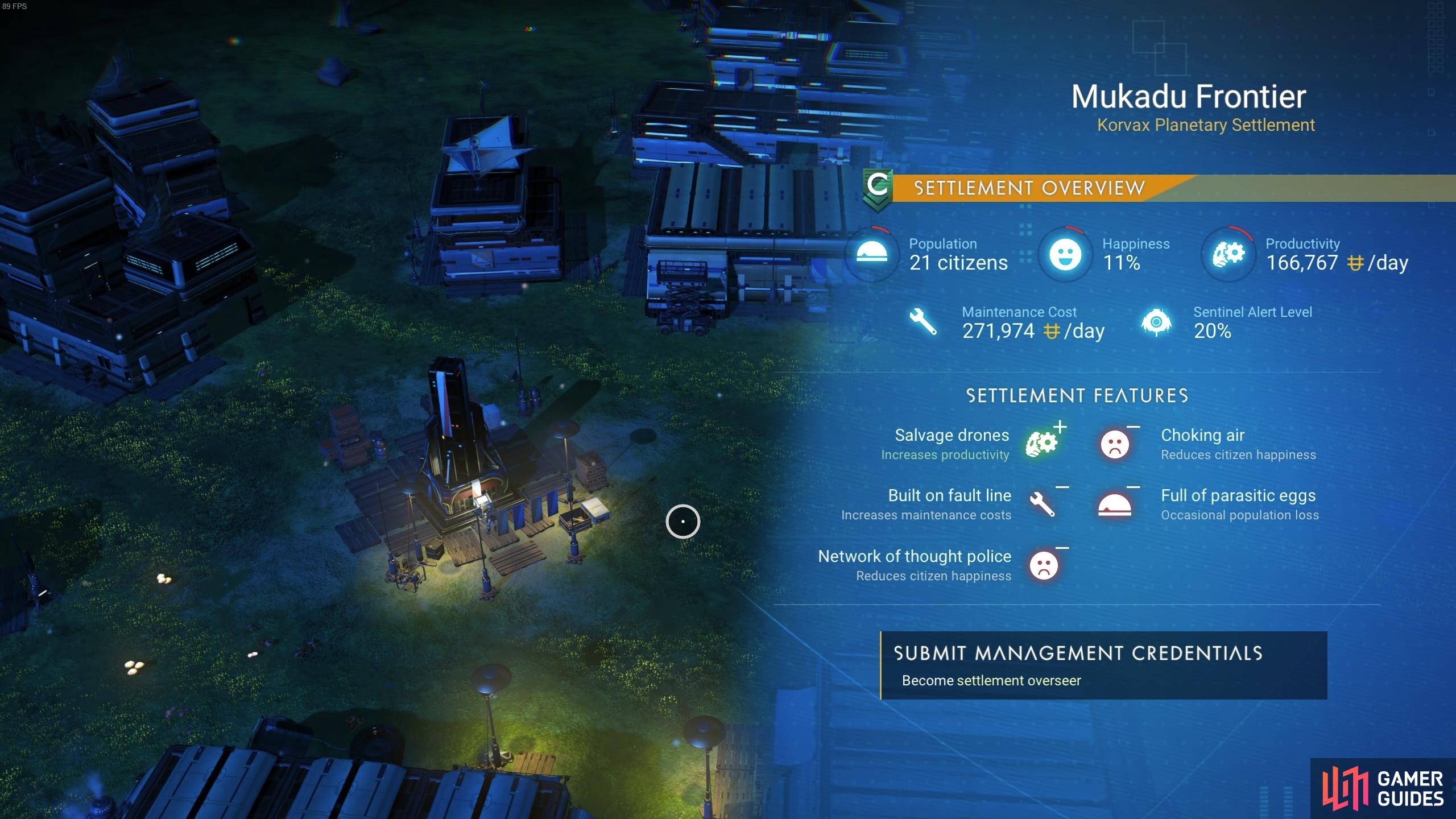
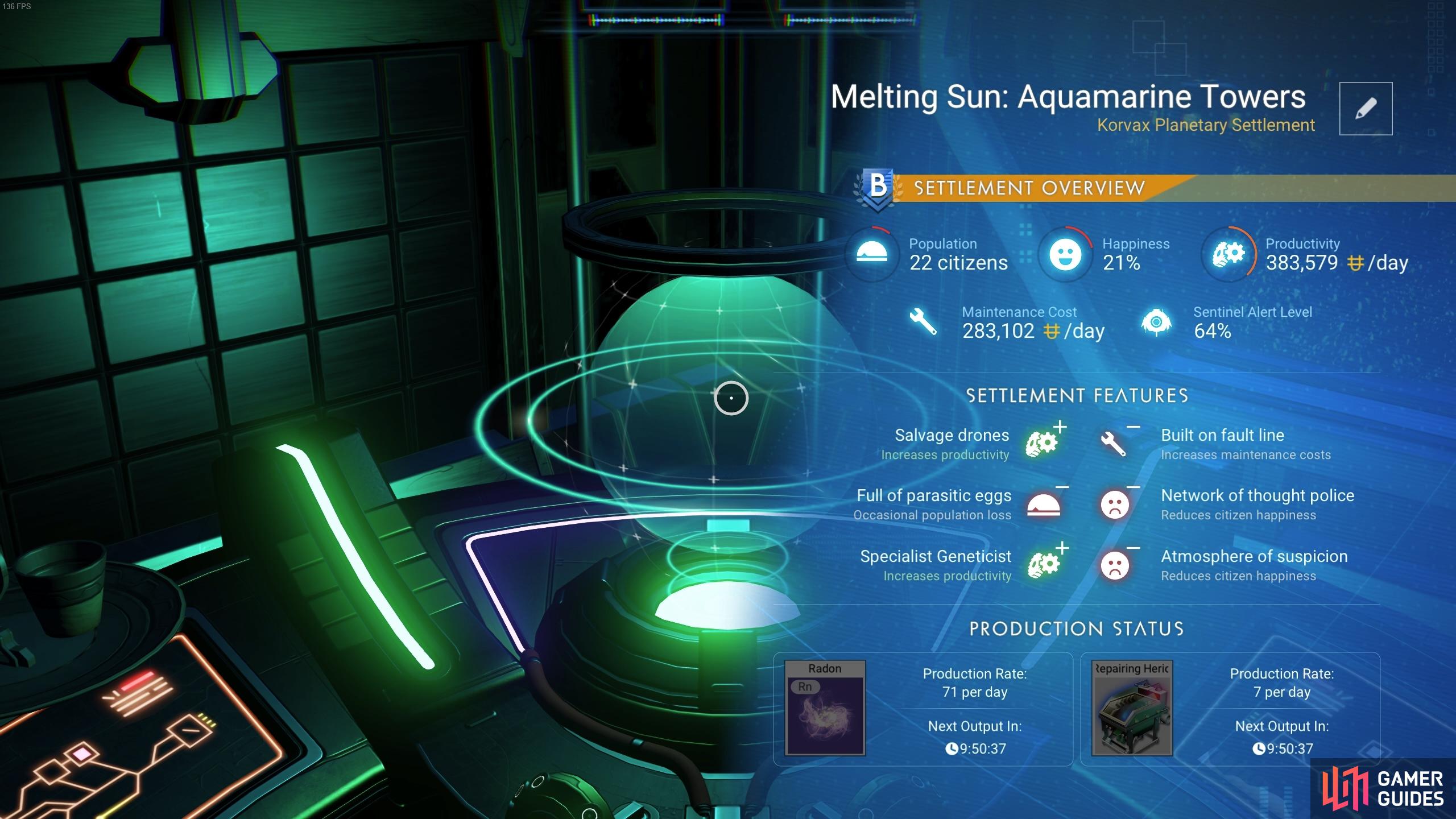

 Sign up
Sign up
No Comments